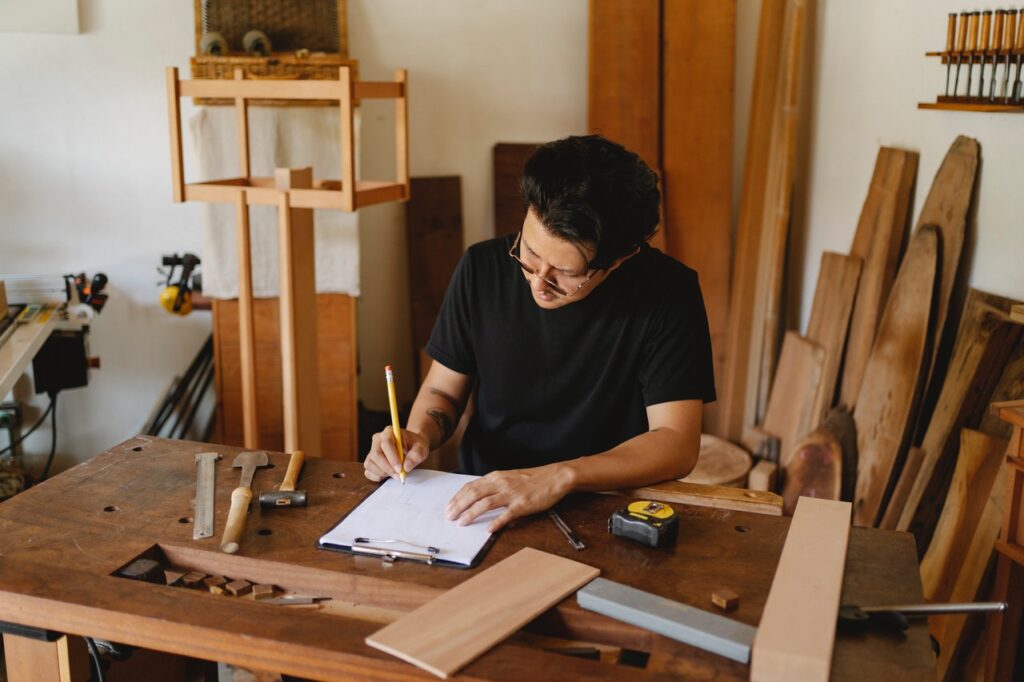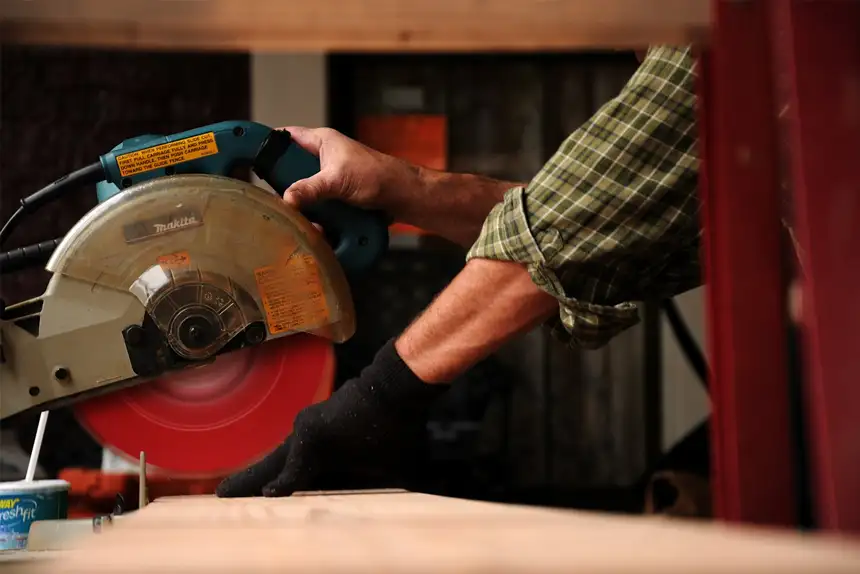Ambitious makers have been carving their own pieces of furniture with carefully-selected woods for years, but now more are turning it into profits.
Experienced woodworkers can earn a living by turning their woodworking passion into a business. However, start-up costs can sometimes be overwhelming as woodworkers scramble to get the company off the ground and find funding for the necessary equipment to meet the growing demand for their products. Leasing is a natural solution to saving money on woodworking equipment costs upfront. Learn more about the details of equipment leasing to decide if it’s a practical solution for your woodworking business.
Planning for Woodworking Businesses
Whether you’re a start-up or you’re an established company expanding to include new equipment, expertly planning your next steps is critical for all business owners.

Start-Up Businesses
As you begin budgeting for all your new expenses, be sure to consider the costs for all the equipment you will need. In addition to minimal office supplies and basic software systems, you will require at least a base level of woodworking equipment to complete the orders that come in for your business to fulfill. Many companies save money to purchase the equipment outright, but that may not always be the most fiscally savvy move.
Consider leasing woodworking equipment as a best practice for your start-up based on the following factors that arent available if you purchase:
- Saves money upfront
- Money can be used elsewhere
- Spreads cost over time
- Can upgrade when necessary
- Aren’t stuck with old equipment
- Fixed rates with fees built-in
- Negotiable terms
- Can re-lease or buy
Established Businesses
Businesses that already have equipment set up and in working order may not see the value in leasing additional equipment. That is until the orders start pouring in over the holiday season or their products go viral. The first season of true popularity will change the mind of even the most seasoned business owner. There is an urgent need for updated machinery that can work faster and harder to create more products. Even if no updating is required, more machinery may be necessary to get the job done with more orders. Tax breaks are beneficial to everyone.
Equipment for Woodworking Businesses
Some woodworking businesses pride themselves on an artisan approach to wood manipulation. To them, woodworking is simply a hand tool and an excellent piece of wood. There is nothing wrong with this business model. In fact, artisanal carvers and hand-hewn beam and plank makers are renowned for their expertise in the craft. For this approach, the costs of the most expensive tools are not unmanageable, even for most start-ups.

Woodworking, however, is an expansive field. Professional woodworkers are skilled in many areas, ranging from canoe making to Adirondack chair crafting to dollhouse construction to custom-built dining room tables to turned wood columns and decorative fireplace corbels to log cabins and honestly everything in between. Because the woodworking field is so vast, the necessary tools and equipment vary from niche maker to niche maker.
Equipment costs can be overwhelming to a small business, and one band saw alone could cost upwards of $15,000. Not every piece of equipment is astronomically expensive, nor does it have to be a top-of-the-line model. However, even moderately priced and used equipment costs can compound if you have to build a complete woodworking studio from the ground up. Some standard specialty equipment found in woodworking studios includes but is not limited to:
- Computers and digital programming
- Saws
- Planes
- Sanders
- Files
- Hand tools
- Tables and workbenches
- Safety gear
Options for Woodworking Businesses
Each category of common equipment contains multiple subcategories. For example, in the saw category, that one term could include anywhere from just one to 15 or more necessary saws for a woodworking shop. Not every saw will be required for each and every shop, but for businesses that specialize in more than one area, it is not uncommon to see a plethora of tools to complete various jobs.
Finding the right woodworking equipment financing can be confusing, if not frustrating. There are many different options to choose from for funding, and woodworking businesses should explore all financing opportunities before making an informed choice. Comparing loans and lenders is a best practice for all business owners.
Leasing for Woodworking Businesses
Equipment leasing is a popular choice for both start-ups and established businesses in woodworking. Technology is constantly changing, even in one of the oldest crafts in history. Further, the ebb and flow of business demands make cash flow uncertain, especially in recent times. Ensuring that you don’t max out your credit line by utilizing an additional source of financing is thoughtful planning.

Benefits
Leasing has multiple benefits over purchasing equipment outright or renting it from a retailer:
- Frontend savings
- Tax breaks
- Trade-in value
- Cancelable
- Flexibility
- New or pre-owned
- Upgrades
- Predictable payments
Terms
The clear benefits are often enough to convince business owners to go with leasing even if they can buy equipment outright. This is often a wise choice financially. When paid on time and used with business savvy intentions, leasing can genuinely help your business build credit history and relieve the burden of lump sum costs. However, not all lenders and terms are the same. Business owners must pay attention to more than just the overall cost of the lease over time. Specific terms may be damaging to your business credit if you overlook them in the contract:
- Ballooning payments
- Brokers fees
- Cancelation fees
- Penalty fees
- Risk of obsolescence
- Duration of lease
- Late payment fees
- Default protocols
Responsibilities
Once you determine that equipment leasing is the right avenue of finance for your business, work with your lender to clarify your responsibilities versus their responsibilities to you as the lessee. Seek clarity on insurance, taxes, assets, and liabilities of your equipment and leasing agreement.
Considerations for Woodworking Businesses
Equipment leasing is a practical way to decrease otherwise substantial costs for necessary tools and equipment. Woodworking, like many other businesses, requires modern machinery to do the job efficiently. Your company makes the most profit with maximum efficiency, which is ultimately the prime objective of every owner.
Platform Funding can help you with financing. If equipment leasing is right for your woodworking business, you only need to complete a simple online application process. Our online form will ask about your business type, name, revenue, and length of operation. Relay how much money you need and complete the section on your own personal info. After you upload your three most recent bank statements, the application is complete once submitted.
If you have any questions along the way or if you would like to speak with a consultant about equipment leasing for your woodworking business, contact Platform Funding today.


